As hunters, we’re always looking for ways to improve the success of each hunt. Ground blinds have become one of the popular tools for deer hunting, offering concealment and more movement than a traditional tree stand. But one question remains: can deer smell you in a ground blind?
A deer has a keen sense of smell which poses a significant challenge for hunters.
Let’s take real experience and discuss this crucial topic and reveal the truth about whether deer can detect your scent in a ground blind and provide tips to maximize your scent control efforts.
How Good is a Deer’s Sense of Smell?
Before we address the main question, it’s essential to understand just how incredible a deer’s olfactory abilities are. Deer have a highly advanced sense of smell, far better than that of humans.
Here are some fascinating facts about how far can a deer smell:
- Deer have up to 297 million olfactory receptors, compared to a human’s mere 5 million.
- They can detect odors from up to half a mile away under ideal conditions.
- A deer’s brain dedicates a significant portion to processing scent information. They can differentiate between hundreds of different odors simultaneously.
According to these remarkable abilities of deer, it’s clear that scent control is crucial for any deer hunter.
Can Deer Smell You in a Ground Blind?
The short answer is yes, deer can potentially smell you in a ground blind.
However, how well they can detect your scent depends on various factors. A ground blind is not a magical scent-proof box, but it can help reduce the amount of human odor that escapes into the surrounding area.
Ground blinds offer some advantages when it comes to scent control:
- They provide a physical barrier between you and the outside environment.
- Enclosed blinds can help contain some of your scents, especially if properly sealed.
- Elevated blinds can help disperse your scent above a deer’s normal detection zone.
However, it’s important to note that no blind is 100% scent-proof. Air currents can still carry your scent out of the blind through opening fields or when you move.
Factors That Affect Scent Control in Ground Blinds
To keep your scent well contained in a ground hunting blind, there are several factors to consider:
- Wind direction and speed: Strong winds can quickly dispel your scent, while calm conditions may allow it to linger for a longer time.
- Temperature and humidity: Warmer temperatures and higher humidity can make scents more volatile and easier for deer to detect.
- Blind design: Some blinds are better designed for scent control, with features like sealed windows, vents, and scent-absorbing materials.
- Your personal scent profile: The strength of your body odor, the products you use, and your hygiene practices all play a role.
- Time spent in the blind: The longer you’re in the blind, the more human scent will accumulate.
- Ventilation: While this is necessary for comfort, blinds with open windows or vents can allow the scent to escape more easily.
Tips To Minimize Scent in a Ground Blind
Based on the real experiences and discussions from many hunters, we have gathered some insights on scent control in ground blinds to provide valuable techniques that can enhance your success in deer hunting.
While it might be difficult to completely get rid of your scent, there are several strategies you can apply to minimize it:
- Smoking and Designing the Blind: Many hunters mentioned using smoke to smoke the blind itself. This method aims to mask human odors with scents that deer may not find alarming. Moreover, the idea of using natural elements like dry leaves and twigs is also effective, as it likely blends better with the outdoor environment than artificial scents.
- Scent-Free Practices: Because any residual human scent can alert deer, it is believed that washing clothes with fragrance-free detergent and letting them air dry is a common tactic. Also, the method of smoking clothing also appears to be effective for certain hunters. Those familiar odors, like smoke, might not trigger the same caution in deer as synthetic scents do.
- Understanding Wind Direction: We all know that hunting with the wind in your face is critical. Even the best scent-masking techniques can fail if the wind carries human odor toward deer. Knowing that wind can swirl so we need to carefully position our blinds and keep track of shifts in wind patterns during a hunt.
- Using Scent Control Products: Some said that we can utilize equipment like the scent control unit, which can help mask human odors. However, these products seem to be most effective when combined with traditional methods and proper wind management.
- Brushing In: Camouflaging the hunting blind with local vegetation is another effective strategy mentioned. This not only conceals the blind visually but also helps to blend its scent with the surrounding environment that local animals are familiar with, making it less noticeable to deer.
- Proper Blind Placement: Always try to position your blind downwind of where you expect deer to come closer. If possible, place your blind on slightly elevated ground to help disperse scent above deer level. Don’t ever set up too close to heavily used deer trails or feeding areas.
Here are our points:
To efficiently manage scent during hunting, it’s crucial to combine different techniques like utilizing smoke, scent control products, and wind patterns. They can greatly enhance your success rate, particularly in regions with a high deer population. Besides, attaching local plants or leaves to your blind will improve both scent coverage and visual camouflage.
Finally, continuously monitor the wind direction and adjust your position and strategy. Even if you think you’ve masked your scent well, being aware of environmental changes can make a significant difference in your success.
Additional Measures To Get Deer Come Closer
Beyond controlling your scent within the blind, you can also consider these additional strategies to attract deer to come to you:
- Use deer attractants: Natural smells like earth, pine, or acorn can help mask your human odor and attract deer. You can place some of these items on your trail to the blind. Check more: 6 Best Deer Attractants.
- Create scent barriers: Be mindful of your scent profile from the moment you leave your vehicle until you return. Hang scent-absorbing cloths or use scent-eliminating products not just on your blind, you should spray them around your hunting area.
- Use trail cameras: Monitor deer behavior and movement patterns to optimize your blind placement and hunting strategy.
- Rotate hunting locations: Avoid overusing one spot, which can lead to increased the buildup of human scent over time.
- Use decoys: Placing deer decoys near your blind can help distract deer from investigating any faint human scents.
Conclusion
While deer can potentially smell you in a ground blind, proper scent control measures and strategic blind placement can significantly reduce the risk of detection.
By understanding a deer’s incredible sense of smell and taking proactive steps, you’ll be well on your way to deceiving these vigilant creatures.
Remember, no single technique is 100% working, but combining multiple strategies will greatly improve your chance of success.
Key Takeaway of scent control for deer hunting:
- Apply scent-eliminating sprays to your clothing, gear, and the inside of your blind. Invest in high-quality, scent-absorbing hunting attire.
- Use scent-free soaps, avoid strong-smelling foods before hunting, and use a face mask or breath-eliminating products to reduce odors from your mouth.
- Use weather stripping or tape to seal any gaps in your blind’s construction.
- Use an ozone generator to help neutralize odors inside your blind.
- Bring scent-absorbing materials like activated charcoal or other odor-absorbing products that can help trap scents inside the blind.
- Limit your movement. The less you move, the less scent you’ll produce and disperse.


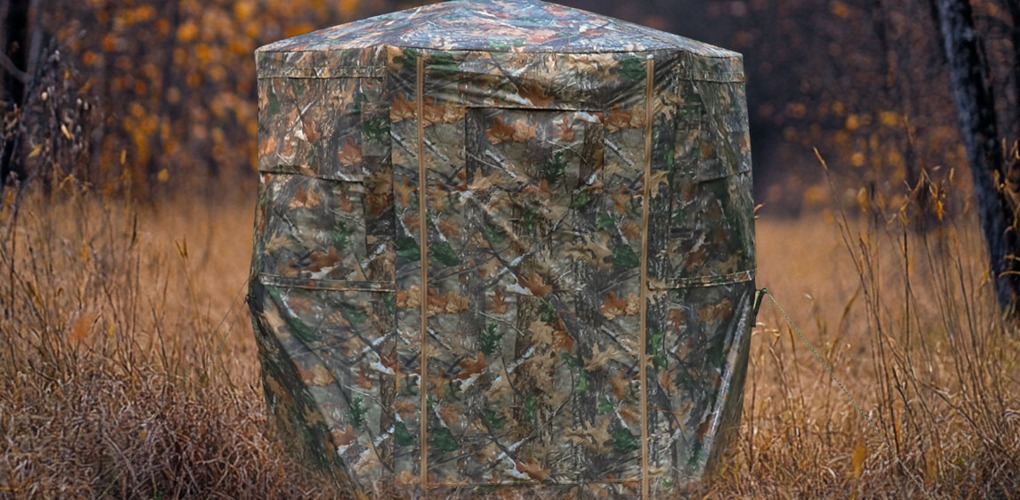
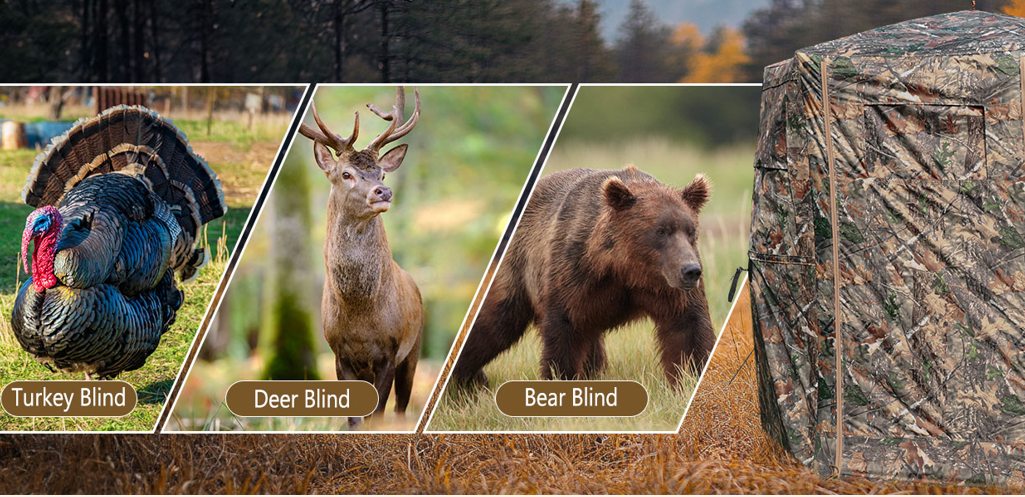
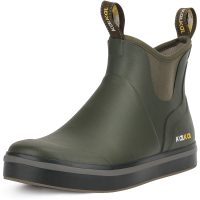

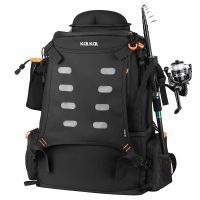







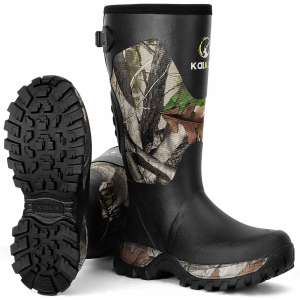

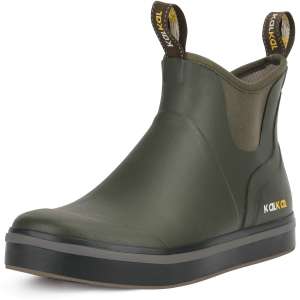




Leave a reply